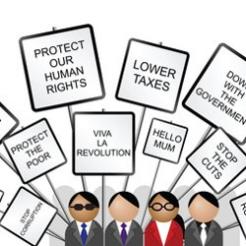The Electoral Commission is likely to lack the resources to effectively enforce the Lobbying Act, according to the chair of a commission set up to win changes to the law.
In an interview with Charity Finance magazine, Lord Harries of Pentregarth, chair of the Commission on Civil Society and Democratic Engagement, said he had grave doubts about the ability of the Electoral Commission to deal with the significant extra work that it would be required to undertake as a result of the Act.
“I should doubt they have the resources to do the job that’s been asked of them,” he said. “They said themselves that parts of the bill, such as the part about constituency limits, were unenforceable. So they’ve been put in a very difficult position.”
The Transparency of Lobbying, Non-Party Campaigning and Trade Union Administration Act places limits on political activity by third parties in the run-up to an election, and charities have said it may harm their ability to campaign. It came into law in January, and the Electoral Commission has said it will produce guidance on the Act by the summer.
Charities and campaigning groups were heavily critical of the lack of consultation around the bill. Harries’ commission, which was backed by more than 150 groups, lobbied to amend the act to reduce its effect on charity campaigning.
Harries said civil society organisations had won “70 per cent of what we were looking for” during a “remarkably intense but short-lived campaign” to have the bill amended.
He said his commission has now closed down, but will reconvene to study Electoral Commission guidance when it opens, and to contribute to a review of the act after the 2015 General Election.
This month's Charity Finance features an in-depth interview with Lord Harries









